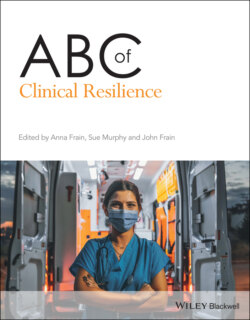Читать книгу ABC of Clinical Resilience - Группа авторов - Страница 12
Increasing patient expectations, complaints and litigation
ОглавлениеZuzsanna Jakab (WHO) emphasises that peoples’ expectations of healthcare have changed, and that they wish for greater involvement in their healthcare, including in making decisions about treatment (Jakab, 2011). However, many health inequalities still exist and indicate a need for patient empowerment. Patients may not have the material, educational or political means to access health, now considered a basic human right.
Increasing patient expectations has led to an increasing number of complaints and litigation. In UK Primary Care, patients’ written complaints about care increased by 4058 (4.5%) – from 90579 in 2016–2017 to 94637 (NHS Digital. Data on written complaints in the NHS, 2017–2018). In terms of impact on all parties, this is not sustainable. Where practitioners are unable to cope with understandable negative feelings of shock, burnout and anger following a complaint, there is a risk of post‐traumatic stress disorder (PTSD), leading to their being described as a ‘second victim’ of the event (Chapter 4).
Maintaining resilience is challenging where a practitioner works in an organisation in which they feel undervalued and which appears to favour a culture of punishment rather than one of learning. Bourne found that complaints not only seriously impact doctors’ psychological well‐being but are also associated with defensive practice (Bourne et al., 2016). This has a detrimental effect on patient care. Resolution of complaints and significant event analysis is essential for patient safety and service improvement. However, investigation procedures require transparency and timeliness to actually facilitate patient safety and practitioner resilience. A more resilient approach by practitioners to receiving complaints and their role in learning may then be possible to ensure better patient care.
